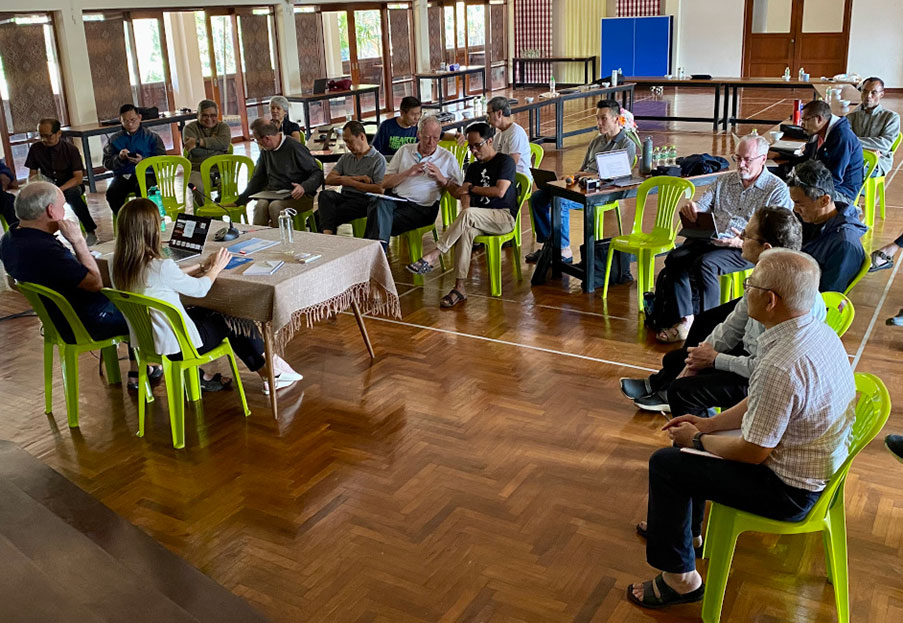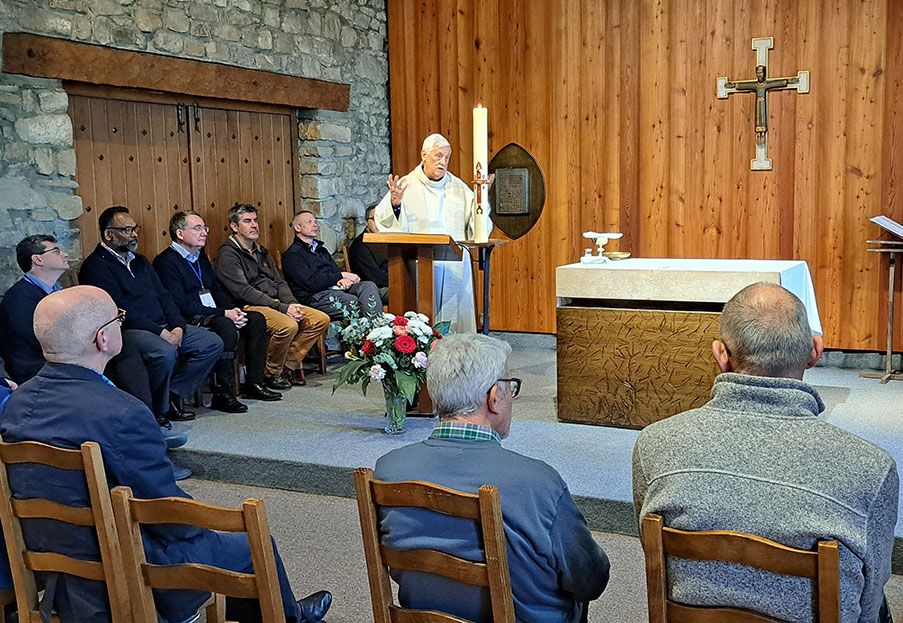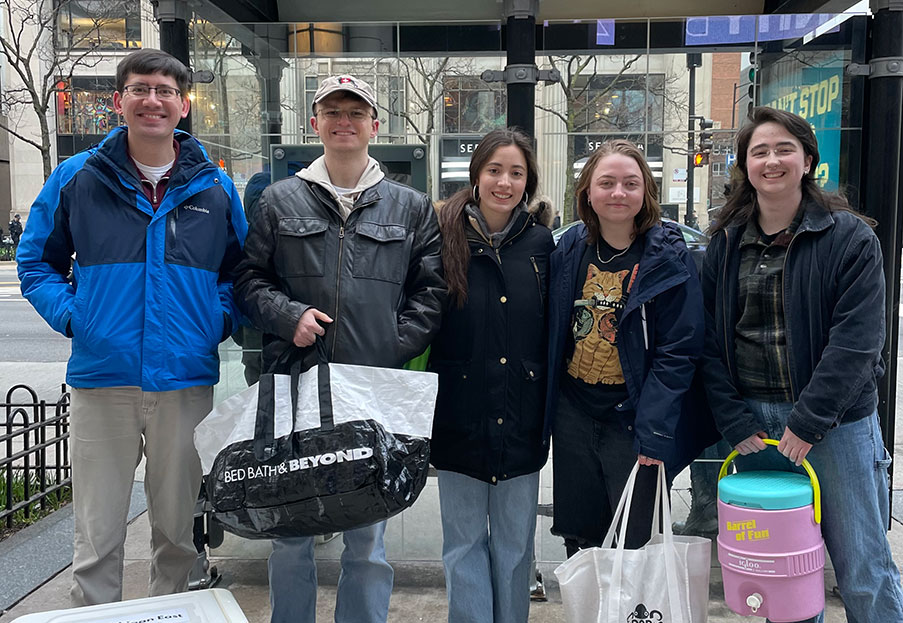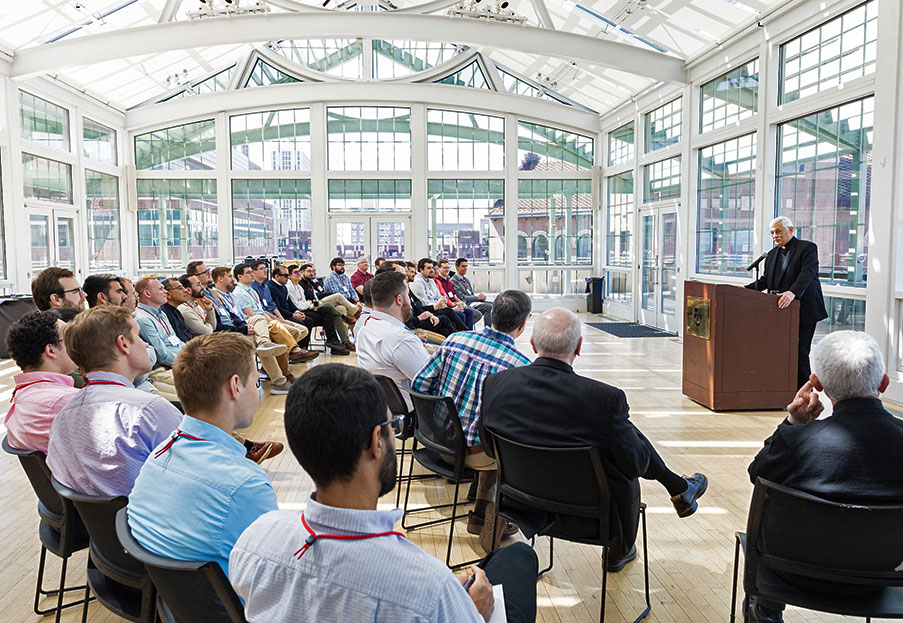Homily of Fr. General at the Mass on Friday, October 25, in Ljubljana
Rom 7:18-25; Lk 12:54-59
Dear Jesuit Companions, Fellow Collaborators, and dear Friends who accompany us:
We have just prayed in community for the 50 years of the Jesuit Province of Slovenia and now we want to celebrate it around the table of the Eucharist, which sums up the sorrows and joys of our searches in the sorrows and joys of the crucified and risen Christ.
Fifty years of Jesuit presence in the country means fifty years of walking, serving, contemplating the world from the Ignatian spirituality. Fifty years of trying a path of discernment to know where God wants us to serve his people, where to continue serving this young and ancient Church, this society that has gone through so many historical events. Fifty years learning this difficult art of discernment.
Scripture says, “When you see a cloud rising, you know that it is going to rain, and when you see a south wind blowing, it is going to be hot.” It is the confirmation, on the one hand, of the contemplative capacity of the human being, his capacity to discern, to anticipate time, to perceive the future from the present reality.
To discern, then, is to know how to look and to see how to interpret what we see. It is a wisdom that is in us, in our cultures, in what passes from generation to generation. Jesus invites us to deepen that innate wisdom learned from our tradition in order to put it at the service of others.
But this wisdom must be deepened by cultivating the inner man, as St. Paul reminds us in his letter to the Romans. Without cultivating the depth of the senses we will not grow in Christ and his freedom. For to discern is to contemplate and also to listen; it is to taste and to converse. Thus, time is revealed and God’s future is built.
Listening to what is happening around us: the cry of the people, of society as a whole, the cry of nature; the voice of those who come from afar and the deep needs of those who are nearer. Listen to the rumor of history to know where we come from and where we are going. Listen so as not to live isolated and centered on our own.
And it is also talking. To give an account of what we have seen and heard, and to seek with others the paths to follow. The ways where God wants us to be. And to converse in conversation (as in a colloquy) with God the Father, And you, Lord, how are you in reality, what do you want from us? In the face of what is happening, in the face of the ups and downs this people is going through, this church, our Society of Jesus is asking God to whisper to us what he wants from us: how he wants us to be forgiven and reconciled in times of change, in times where the signs of the times challenge us. To discern is to listen: with one another and with God, with Christ, with Mary, in an interior colloquy, as the Spiritual Exercises ask. Because the Lord seeks us in history, even in the most contradictory conditions, as Pope Francis says in Evangelii Gaudium. Discernment is always an invitation to conversion: to go out of our ways and enter into those of the Lord.
Discernment invites hope, because it sees what happens as an invitation to be unveiled, as a great opportunity to know how to better serve society and the church, while freeing us from the temptation to believe that problems are so complex that they become almost impossible to solve. The art of discernment is to learn to read the world looking for the last heartbeat, God’s heartbeat.
Attentive, therefore, to the heart and to what the heart listens to and to listen to one another and to God with a willing heart and an open mind. The synodality promoted by Pope Francis is made up of this way of looking, reacting, listening and conversing.
We can also recall today the collective discernment that the Pope, the bishops and so many pastoral agents have been doing these days in the Synod of the Amazon so that God the Father may bless their efforts. And give us all his peace.







